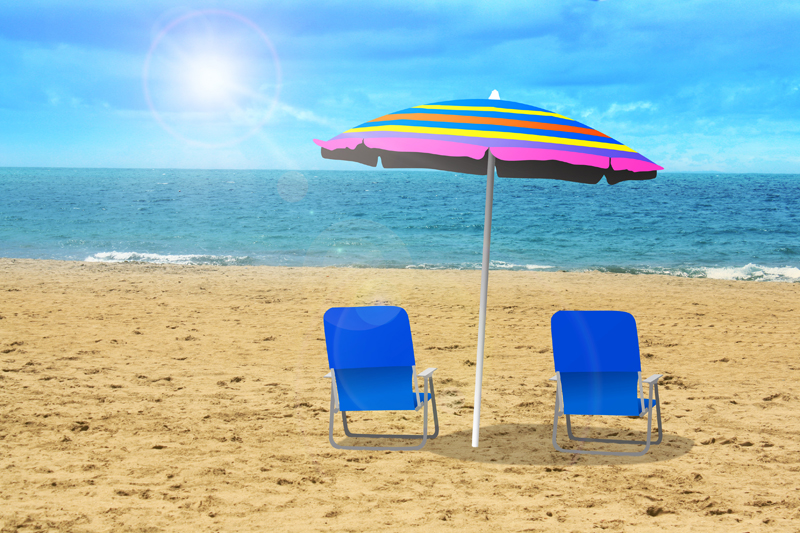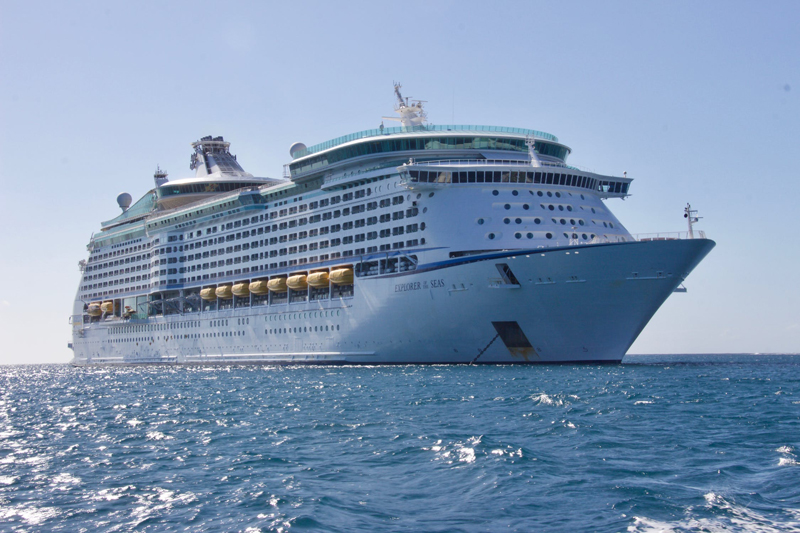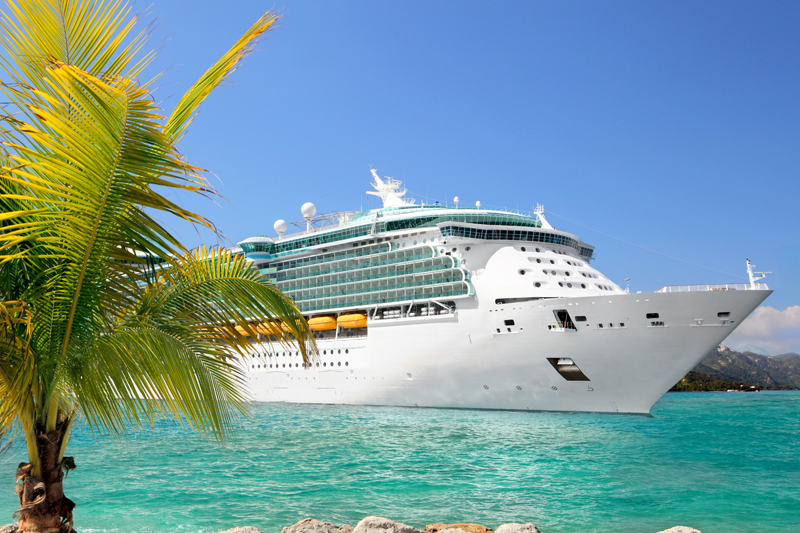9 Great Tips For Booking Vacation Rentals

Vacation home rentals can be an excellent choice for those wishing to spend time around their departure destination before or after a cruise. These properties can provide sought-after features, including full kitchens, private pools, and plenty of room to relax in beautiful areas around the country. Some of these vacation homes and condominiums may be located in resorts, which can provide additional amenities such as recreational facilities, live entertainment, spas, beach chairs, and more.
Home rental companies and online sites like Airbnb and VRBO are seeing strong demand for home and condominium rentals in traditional vacation spots around the United States, including near many cruise home ports. If you’re considering renting a vacation property, it’s essential to research your options and ask questions in advance. Policies vary widely, and listings can be vague or confusing.
Here are nine key tips and suggestions to help you choose the best vacation home or condominium rental for your next trip:
1. Book early for the best selection. Coastal destinations are very popular this year, resulting in a surge in vacation home rentals. If you’re planning on extending your cruise vacation in warm weather destinations like Miami or Fort Lauderdale, make your plans as soon as possible for the best rental home selection. Make a list of the features you want in your vacation home or condominium, including location and number of bedrooms. Seek out vacation rentals with excellent kitchen facilities so you can cook meals, high-speed Internet, and a private pool if available. Map each home’s location via Google Maps.
2. Compare prices. It’s important to determine the total final cost of each vacation rental before booking. Rental sites may tack on some additional fees to the cost before checking out, which can significant increase the total price. These may include taxes, service fees, host fees, resort fees, cleaning charges, pet fees, occupancy taxes, and more. Sites like Airbnb and VRBO often do not list the full total price for vacation rentals until users hit the “Book now” button. Some vacation home rentals are listed on both VRBO and Airbnb, and total prices may vary between the platforms. Vacation properties may also be listed with local rental agencies, and the total cost may be lower on those platforms. It’s also wise to compare vacation rental prices versus the cost of staying in comparable resorts and hotels in the area, particularly if condominium-style resorts or hotel properties are available.
3. Read reviews carefully. Before booking, carefully study the reviews for each property being considered. While recent reviews are most important, check out earlier responses as well. Be careful of properties that have very few reviews or a significant number of highly inconsistent replies. It’s key to look through all of the available photos, too. If you are considering a vacation rental property in a resort or large condominium complex, check TripAdvisor to see if reviews are listed there.
4. Understand what is included with your vacation rental. Read each property description carefully and ask the agency or host about any exclusions and potential extra fees. This is particularly true for vacation rentals in resort communities, as sometimes these private rentals cannot access key resort amenities like pools, restaurants, and other facilities. In addition, vacation rentals in city-based condominium complexes may have additional mandatory fees for security fobs and parking. Some rental agencies and hosts do not provide linens, towels, and other supplies – so make sure to understand what you might need to bring. You may wish to confirm cleaning procedures and expectations, too.
5. Confirm key features. If certain amenities or features are important, confirm them in writing before booking with the rental agency or host. These might include room configurations – including how many true bedrooms with doors the property has, types of staircases, whether pools and beaches are accessible free-of-charge, parking availability and costs, Internet speed and access, location information, and other issues.
6. Double-check cancellation and deposit policies. Reach out to your potential host or rental agency and ensure you understand the cancellation policies for any rental you’re considering. Ask whether you will be receiving a cash refund or a credit for future use and if so, learn if there are black-out dates for rescheduling your trip. In addition, ask about damage and security deposits and determine in writing when any deposits will be returned. If you do not receive clear answers on any of these issues in writing, do not rent the property and find an alternative option.
7. Ask about nearby construction and other issues. Many vacationers look forward to the peaceful enjoyment of their rental property, but that can be hampered if there is construction nearby. Construction issues are often excluded from rental property descriptions, so it’s important to inquire before booking. Ask your rental agency or host if nearby properties or units are under construction or being repaired. This is particularly important in the off-season when condominiums and resort properties often do repairs. If you’re planning on traveling with furry family members, make sure the options you’re considering are pet-friendly and ask about any associated fees.
8. Query about flexible arrival and departure times. While some rental agencies and hosts hold firm on arrival and departure times, others are more flexible. This is particularly true during shoulder seasons and other times when the property is not heavily rented. Arriving a few hours early or leaving later can be an attractive amenity, so you may wish to inquire about this when booking. Some rental agencies and hosts charge an additional fee for early arrivals or late departures, while others may offer this on a complimentary basis.
9. Consider purchasing travel insurance. Travel insurance can help alleviate some of the financial risks of travel, including unexpected illnesses, canceled flights, severe weather, bankruptcies, medical expenses resulting from accidents, and more. Purchasing travel insurance within 15 days of your first vacation payment can provide additional coverage for pre-existing conditions and other benefits, so timing is important. The most complete trip insurance coverage is available under "Cancel for Any Reason" policies, which are significantly more expensive but can provide coverage if vacationers decide not to travel due to issues typically not covered by other plans. These issues can include the possibility of hurricanes, adverse weather, or potential health concerns. If you decide to purchase travel insurance, check with trip insurance companies carefully to understand what’s covered and make sure all vacation costs are included. You may also wish to purchase vacation home rental coverage to protect against damages.
Home rental companies and online sites like Airbnb and VRBO are seeing strong demand for home and condominium rentals in traditional vacation spots around the United States, including near many cruise home ports. If you’re considering renting a vacation property, it’s essential to research your options and ask questions in advance. Policies vary widely, and listings can be vague or confusing.
Here are nine key tips and suggestions to help you choose the best vacation home or condominium rental for your next trip:
1. Book early for the best selection. Coastal destinations are very popular this year, resulting in a surge in vacation home rentals. If you’re planning on extending your cruise vacation in warm weather destinations like Miami or Fort Lauderdale, make your plans as soon as possible for the best rental home selection. Make a list of the features you want in your vacation home or condominium, including location and number of bedrooms. Seek out vacation rentals with excellent kitchen facilities so you can cook meals, high-speed Internet, and a private pool if available. Map each home’s location via Google Maps.
2. Compare prices. It’s important to determine the total final cost of each vacation rental before booking. Rental sites may tack on some additional fees to the cost before checking out, which can significant increase the total price. These may include taxes, service fees, host fees, resort fees, cleaning charges, pet fees, occupancy taxes, and more. Sites like Airbnb and VRBO often do not list the full total price for vacation rentals until users hit the “Book now” button. Some vacation home rentals are listed on both VRBO and Airbnb, and total prices may vary between the platforms. Vacation properties may also be listed with local rental agencies, and the total cost may be lower on those platforms. It’s also wise to compare vacation rental prices versus the cost of staying in comparable resorts and hotels in the area, particularly if condominium-style resorts or hotel properties are available.
3. Read reviews carefully. Before booking, carefully study the reviews for each property being considered. While recent reviews are most important, check out earlier responses as well. Be careful of properties that have very few reviews or a significant number of highly inconsistent replies. It’s key to look through all of the available photos, too. If you are considering a vacation rental property in a resort or large condominium complex, check TripAdvisor to see if reviews are listed there.
4. Understand what is included with your vacation rental. Read each property description carefully and ask the agency or host about any exclusions and potential extra fees. This is particularly true for vacation rentals in resort communities, as sometimes these private rentals cannot access key resort amenities like pools, restaurants, and other facilities. In addition, vacation rentals in city-based condominium complexes may have additional mandatory fees for security fobs and parking. Some rental agencies and hosts do not provide linens, towels, and other supplies – so make sure to understand what you might need to bring. You may wish to confirm cleaning procedures and expectations, too.
5. Confirm key features. If certain amenities or features are important, confirm them in writing before booking with the rental agency or host. These might include room configurations – including how many true bedrooms with doors the property has, types of staircases, whether pools and beaches are accessible free-of-charge, parking availability and costs, Internet speed and access, location information, and other issues.
6. Double-check cancellation and deposit policies. Reach out to your potential host or rental agency and ensure you understand the cancellation policies for any rental you’re considering. Ask whether you will be receiving a cash refund or a credit for future use and if so, learn if there are black-out dates for rescheduling your trip. In addition, ask about damage and security deposits and determine in writing when any deposits will be returned. If you do not receive clear answers on any of these issues in writing, do not rent the property and find an alternative option.
7. Ask about nearby construction and other issues. Many vacationers look forward to the peaceful enjoyment of their rental property, but that can be hampered if there is construction nearby. Construction issues are often excluded from rental property descriptions, so it’s important to inquire before booking. Ask your rental agency or host if nearby properties or units are under construction or being repaired. This is particularly important in the off-season when condominiums and resort properties often do repairs. If you’re planning on traveling with furry family members, make sure the options you’re considering are pet-friendly and ask about any associated fees.
8. Query about flexible arrival and departure times. While some rental agencies and hosts hold firm on arrival and departure times, others are more flexible. This is particularly true during shoulder seasons and other times when the property is not heavily rented. Arriving a few hours early or leaving later can be an attractive amenity, so you may wish to inquire about this when booking. Some rental agencies and hosts charge an additional fee for early arrivals or late departures, while others may offer this on a complimentary basis.
9. Consider purchasing travel insurance. Travel insurance can help alleviate some of the financial risks of travel, including unexpected illnesses, canceled flights, severe weather, bankruptcies, medical expenses resulting from accidents, and more. Purchasing travel insurance within 15 days of your first vacation payment can provide additional coverage for pre-existing conditions and other benefits, so timing is important. The most complete trip insurance coverage is available under "Cancel for Any Reason" policies, which are significantly more expensive but can provide coverage if vacationers decide not to travel due to issues typically not covered by other plans. These issues can include the possibility of hurricanes, adverse weather, or potential health concerns. If you decide to purchase travel insurance, check with trip insurance companies carefully to understand what’s covered and make sure all vacation costs are included. You may also wish to purchase vacation home rental coverage to protect against damages.

Related Articles
Editor's Picks Articles
Top Ten Articles
Previous Features
Site Map
Content copyright © 2023 by Nancy Schretter. All rights reserved.
This content was written by Nancy Schretter. If you wish to use this content in any manner, you need written permission. Contact Nancy Schretter for details.





